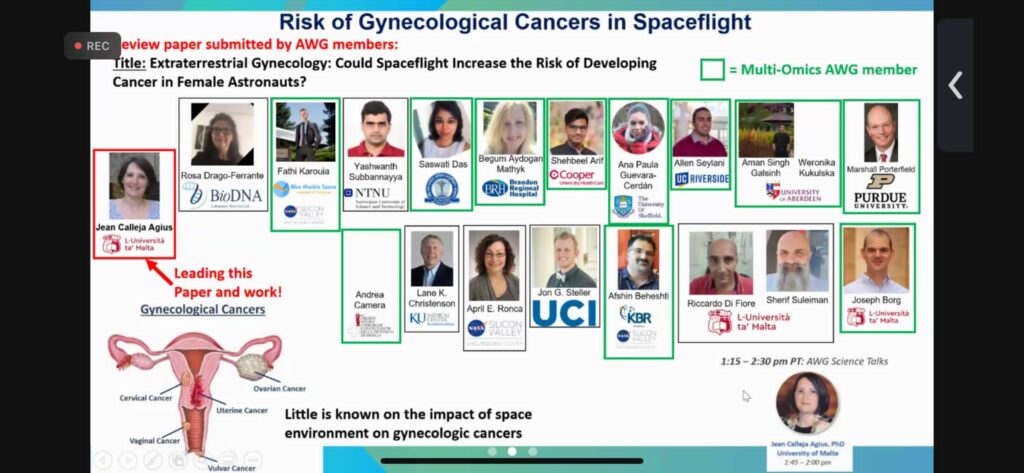Could spaceflight increase the risk of developing gynaecological cancer?
Check out this latest paper discussing the risk of gynaecological cancer in spaceflight!
This work was led by members from the GYNOCARE COST Action in collaboration with the NASA GeneLab Multi-Omics Analysis Working Group.
Outer space is an extremely hostile environment for human life, with ionizing radiation from galactic cosmic rays and microgravity posing the most significant hazards to the health of astronauts. Spaceflight has also been shown to have an impact on established cancer hallmarks, possibly increasing carcinogenic risk. Terrestrially, women have a higher incidence of radiation-induced cancers, largely driven by lung, thyroid, breast, and ovarian cancers, and therefore, historically, they have been permitted to spend significantly less time in space than men.
In the present review, Drago-Ferrante R. et al focus on the effects of microgravity and radiation on the female reproductive system, particularly gynaecological cancer. The aim is to provide a summary of the research that has been carried out related to the risk of gynaecological cancer, highlighting what further studies are needed to pave the way for safer exploration class missions, as well as postflight screening and management of women astronauts following long-duration spaceflight.
Click here to read the full manuscript.
